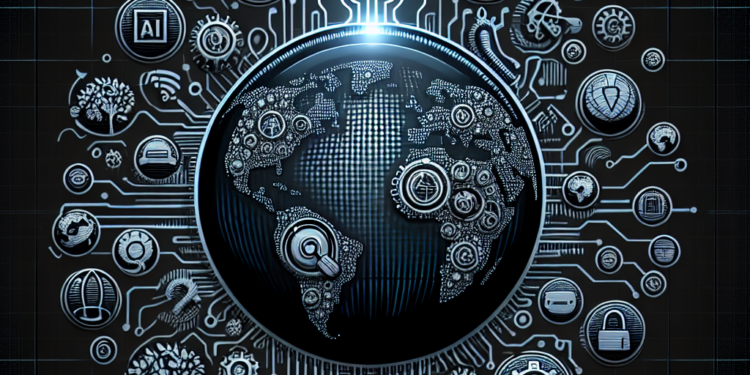Artificial Intelligence (AI) has been developing rapidly over the past few years, and its impact on the global job market is becoming increasingly significant. As AI technology continues to advance, it is changing the way businesses operate and the skills that are in demand in the workforce. This has led to both opportunities and challenges for workers around the world.
One of the key ways that AI is affecting the job market is through automation. As AI technology becomes more sophisticated, it is increasingly able to perform tasks that were previously done by humans. This includes both routine tasks, such as data entry and basic customer service, as well as more complex tasks, such as medical diagnosis and financial analysis. This has the potential to lead to significant job displacement in many industries, as companies turn to AI technology to streamline their operations and reduce costs.
At the same time, AI is also creating new job opportunities in fields such as data science, machine learning, and artificial intelligence research. As businesses invest in AI technology, they need skilled workers who can develop, implement, and maintain these systems. This has led to a growing demand for workers with expertise in AI-related fields, as well as a need for workers who can adapt to a rapidly changing job market.
The impact of AI on the job market is likely to vary depending on the industry and the region. Some industries, such as manufacturing and transportation, are likely to be more heavily affected by automation, as AI technology becomes increasingly capable of performing tasks that were previously done by humans. Other industries, such as healthcare and finance, are likely to see more job growth as companies invest in AI technology to improve their services and increase efficiency.
In addition to the impact on specific industries, AI is also likely to affect the type of skills that are in demand in the job market. As AI technology becomes more prevalent, workers will need to develop new skills in order to remain competitive. This includes both technical skills, such as programming and data analysis, as well as soft skills, such as problem-solving and critical thinking. Workers who are able to adapt to these changes and develop new skills will be better positioned to succeed in a rapidly changing job market.
One of the key challenges that workers face in the face of AI technology is the potential for job displacement. As AI technology becomes more capable of performing a wider range of tasks, there is a risk that many traditional jobs will be eliminated. This has the potential to lead to significant job loss in many industries, as companies turn to AI technology to replace human workers. This presents a significant challenge for workers who are at risk of losing their jobs due to automation, as they may struggle to find new employment in a rapidly changing job market.
Another challenge that workers face in the face of AI technology is the need to develop new skills in order to remain competitive. As AI technology continues to advance, workers will need to develop new skills in order to adapt to the changing job market. This includes both technical skills, such as programming and data analysis, as well as soft skills, such as problem-solving and critical thinking. Workers who are able to adapt to these changes and develop new skills will be better positioned to succeed in a job market that is increasingly shaped by AI technology.
Despite these challenges, there are also opportunities for workers as a result of AI technology. As businesses invest in AI technology, there is a growing demand for workers with expertise in AI-related fields. This has led to a growing number of job opportunities in fields such as data science, machine learning, and artificial intelligence research. Workers who are able to develop expertise in these areas will be well-positioned to take advantage of the job growth that is likely to occur in these fields.
In addition to job opportunities in AI-related fields, there are also opportunities for workers to collaborate with AI technology in their current roles. As AI technology becomes more prevalent, workers will need to learn how to work alongside AI systems in order to perform their jobs effectively. This presents an opportunity for workers to develop new skills and expand their expertise in order to remain competitive in a job market that is increasingly shaped by AI technology.
Overall, the growing impact of AI on the global job market presents both opportunities and challenges for workers around the world. While automation has the potential to lead to job displacement in many industries, it also creates new job opportunities in AI-related fields. Workers who are able to adapt to these changes and develop new skills will be well-positioned to succeed in a rapidly changing job market that is increasingly shaped by AI technology. As businesses continue to invest in AI technology, workers will need to learn how to work alongside AI systems in order to remain competitive and take advantage of the job opportunities that are likely to emerge in the future.













